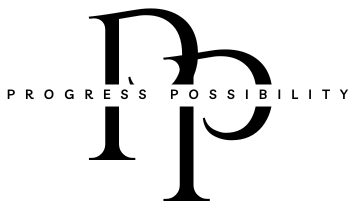It’s not only you and I facing a goal-setting dilemma too. Every person struggles to set and decide their goals before they start. The most important thing to execute your plan, idea, or goal is simply to start. You just need to take only a step ahead and start the Process.
What is Goal Setting?
Goal setting is the process of identifying specific objectives you want to achieve and outlining a plan to reach them. It involves defining what you want and creating a roadmap that guides your actions. By setting both short term and long term goals, you can stay focused and track your progress. Whether for personal growth or team success, setting goals helps you track progress and stay committed to turning your ideas into reality.
Why is Goal Setting Important?
Goal setting is important because it provides direction and purpose in your life. When you set goals, you clarify what you exactly want and what steps you need to take to get there. This clarity helps you stay focused and accountable, making it easier to take action. Achieving your goals gives you a sense of accomplishment and boosts your confidence, encouraging you to pursue even bigger dreams. Overall, setting goals helps you feel more in control of your future and inspires you to keep moving forward.
Why Setting Goals Can Be Tough
Setting goals can feel like you know where you want to go, but the process of achieving those goals seems uncertain and you’re not sure where to start. Achieving goals can be smooth if you trust the process and just start. Let’s suppose you write your goals and you have a good idea and plan to execute. Questions arise in your mind before executing your plan: Is it going to work? What if this plan doesn’t work? What if I end up losing my investment and time? It’s fine. I just want you to know that every person who is successful today has these questions in their mind. The only difference between them and you is that they took a step and started the process to achieve the goals they set.
Why We Are Not Able to Take the First Step
Every Journey starts with a single step. Suppose you have a goal you wrote a few months ago. You think it’s going to work, but due to fear and doubt, you don’t start. A few months later, you change your goal and keep writing different goals but don’t execute any of them, ending up frustrated. You might not start working on any goal because you have questions in your mind –
- I don’t know much about this field, what if I stuck in the middle?
- I think I need to find a mentor first, then I’ll start.
- I don’t have enough investment right now, but I’ll do it later.
- I’m not ready for it right now, I’ll take more knowledge, then will start
- I have enough time to start, when I start will easily achieve it later.
- I think this is not my cup of tea, let’s think about other plans.
And you keep making plans and plans, just getting knowledge and doing research. I’m telling you it’s not going to work and just take a step bro, “start toh kar bhai”.
Power of Starting Small
When you think about achieving something big, you get scared. But every great journey start with taking just one set. Instead of assuming the 100 reasons for failure. Start with something small.
- If you want to run for a marathon, start with a 10-minute walk.
- If you plan to write a book, begin with a paragraph.
These small steps build momentum and help in achieving your set goals. What if I told you the plan and goal you set, you will succeed in it. Imagine the goal you wrote in your diary, you start work on it and gradually you will be able to connect with people who help or provide service to execute your plan and boom you will succeed. How would it feel to know you achieved it just by starting?
Look at the power of taking a step and starting the goal you set. Even if you fail for some reason, you will at least know what not to do next time. You will not regret not taking steps.
Why Procrastination Happens
Procrastination isn’t just laziness; it’s often fear that delays achieving goals. Fear of failure, fear of not being perfect, or even fear of success can hold you back. Recognize these fears and remind yourself that starting now, even imperfectly, is better than not starting at all.
Trust the Process –
Believing that every small step you take will lead you closer to your goal. It’s about having faith that you will achieve your goal. Many people didn’t have a clear roadmap when they started but trusted the process and kept moving forward.
5 Ways of Goal Setting (Principals)
Five key principles by Locke and Latham for successful goal achievement
Commitment
Commitment is how dedicated you are to achieving a goal. When people are committed to their goals, they are more likely to put in the necessary effort and keep going even when things get tough. High levels of commitment are often associated with personal investment in the goal, belief in its importance, and confidence in one’s ability to achieve it.
- High level of Commitment – Challenging Goals – Increase of chance to achieve goals
- Low Level of commitment – Challenging Goals – Increase the chance of giving up.
A high level of commitment means investment in goals and confidence in your ability to achieve them.
Clarity
Clarity means setting clear and specific goals. Clear goals are unambiguous and provide a definite target to aim for. When goals are specific, it is easier to understand what is expected and measure progress.
For example, instead of setting a vague goal like “improve fitness,” a clear goal would be “run three miles in 30 minutes, four times a week.” Clarity reduces confusion, helps focus efforts, and makes it easier to track progress and stay motivated.
Challenging
Challenging goals are those that are ambitious and require effort to achieve. Goals that are too easy can lead to boredom, while difficult goals can be discouraging. Challenging goals strike a balance by being tough yet attainable, pushing yourself to extend abilities and improve performance. Often lead to higher levels of motivation and accomplishment because they require individuals to stretch their capabilities and develop new skills.
Task Complexity
Task Complexity means difficulty of the tasks involved in achieving a goal. When goals involve complex tasks, it is important to ensure that individuals have the necessary skills, resources, and time to complete them. Complex goals may need to be broken down into smaller sub-tasks, each with its mini-goals and deadlines. This approach helps prevent overwhelm, maintains focus, and facilitates systematic progress toward the larger goal.
Feedback
Feedback is the information received about progress toward achieving a goal. Regular and constructive feedback helps individuals understand how well they are doing and what adjustments might be needed to stay on track. Feedback can come from various sources, including self-monitoring, peers, supervisors, or performance metrics. Effective feedback is specific, timely, and focused on behavior and outcomes, guiding how to improve and maintain motivation.
6 Tips to Overcome Goal-Setting Dilemmas
Write Down Your Goals
The Simplest and most important steps to set your goal is by writing it down. You can keep track of your goal progress through this.
Break Goals into Smaller Tasks
Divide your big goal into smaller tasks. This makes the steps to achieve the goal easier.
Set Deadlines
Deadlines help you feel a sense of urgency and help you stay focused. With time already set, you just need to complete that task within that time.
Celebrate small wins
Every small achievement is a step towards your larger goal. Celebrate wins to keep yourself motivated.
Stay Flexible
Be open to adjust your plans if needed. Sometimes the plan we make needs adjustments, so be ready to work on that.
Surround Yourself with like-minded people
Having people who support you and provide suggestions and help to complete your tasks makes a big difference.
Listen, I know achieving your goal is filled with challenges and obstacles. The fear of failure, lack of knowledge, and other’s thoughts hold you back. Finding and overcoming these challenges helps you to stay motivated and focused on your path to success. The power of starting small is so real, trust the process and take consistent steps towards your goals. Remember, every successful person starts from somewhere often without a clear roadmap, but gradually when they start with determination, the right strategies can overcome goal-setting dilemmas and achieve your dreams.


5 thoughts on “5 Proven Ways of Goal Setting | Do it Now”